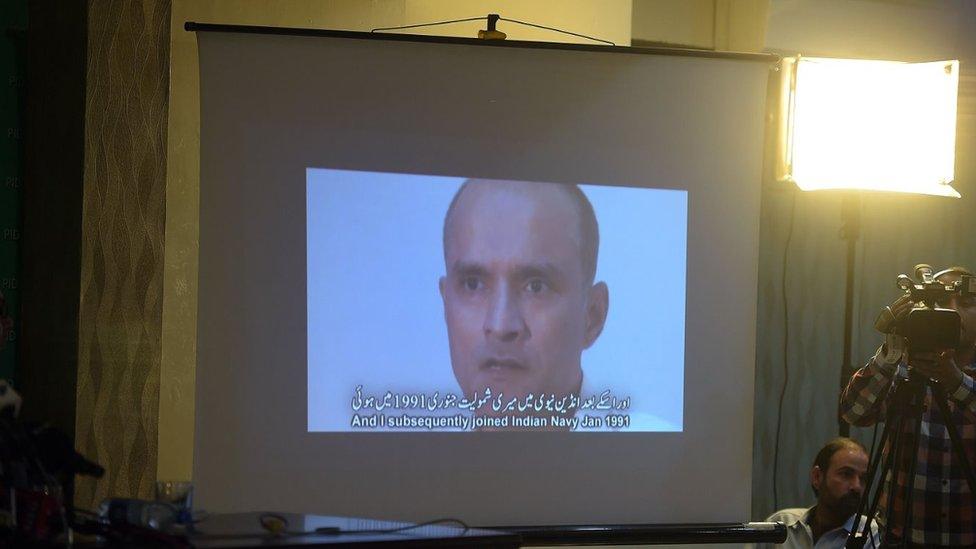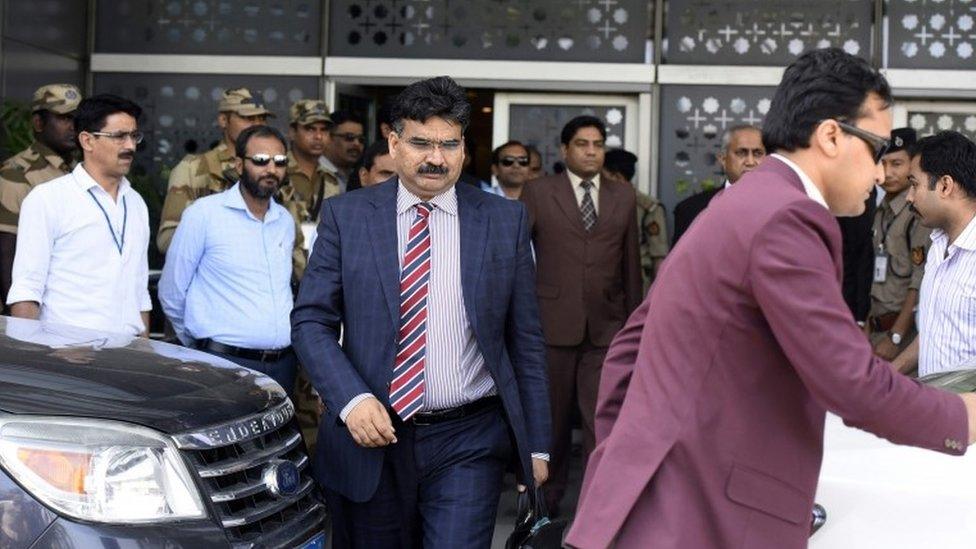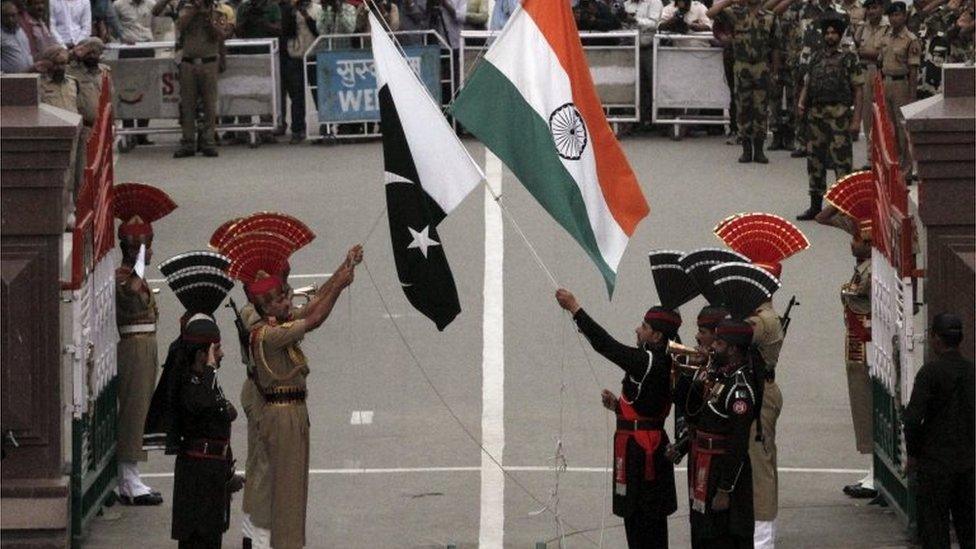Kulbhushan Jadhav: India to do 'whatever it takes' to help 'spy'
- Published

Pakistan says Kulbhushan Jadhav was detained in Balochistan last year
India says it will do "whatever it takes" to ensure justice for a former navy officer sentenced to death in Pakistan on charges of spying.
Foreign Minister Sushma Swaraj said Kulbhushan Jadhav was "kidnapped" and tried on "concocted charges".
Mr Jadhav was arrested last year and convicted on Monday of "espionage and sabotage activities against Pakistan".
Shortly after his arrest, Islamabad released a video in which he was shown admitting involvement in spying.
India has always questioned the alleged confession, saying that it was extracted under duress.
There are differing accounts of how and where Kulbhushan Jadhav was detained.
Pakistan says he was detained on 3 March 2016 in the restive Balochistan province, which has been hit by a separatist insurgency that Islamabad accuses India of backing. India says he was kidnapped by Pakistan while he was in Iran.
Speaking in the Indian parliament on Tuesday, Ms Swaraj described the death sentence as "an indefensible verdict" and warned Pakistan to "consider the consequences".
Home Minister Rajnath Singh promised that the government would do "whatever it takes to make sure Mr Jadhav gets justice".

Who is Kulbhushan Jadhav?
The 46-year-old was a resident of Mumbai
He is the son of Sudhir Jadhav, a retired Mumbai police officer
A former naval officer, he was in the navy for more than a dozen years
His family says he quit the navy to start his own business and was working from Iran's Chabahar port
He is married and has children

On Monday, Pakistan said he had been tried by a military court and sentenced to death.
Pakistan said he told the court he had been ordered to "plan, coordinate, and organise espionage/sabotage activities aiming to destabilise and wage war against Pakistan".
He has 40 days to appeal to the court, Pakistani media report. No date was given for his execution.
The nuclear-armed neighbours have a long history of diplomatic spats and Delhi and Islamabad often accuse each other of sending spies into their territories.
In November, Pakistan withdrew six officials from its mission in Delhi after they were outed as suspected spies by India.
It later leaked to the press the names and photos of eight alleged Indian spies working from India's mission in Islamabad.
But executions for spying are rare. In 1999, Pakistan hanged Sheikh Shamim 10 years after his conviction for spying.
Sarabjit Singh, an Indian man sentenced to death for spying in 1991, died in prison in 2013 while on death row after an attack by other prisoners.
- Published29 March 2016

- Published16 February 2016
